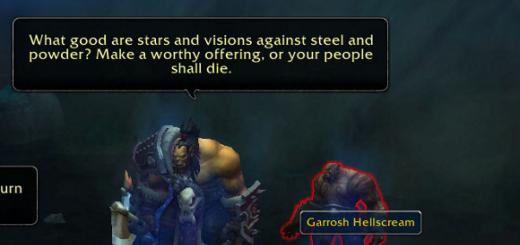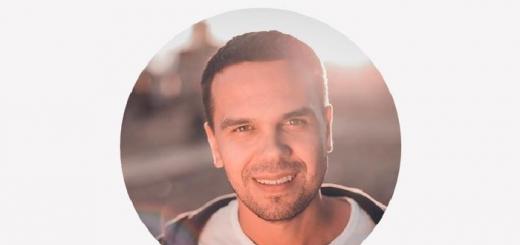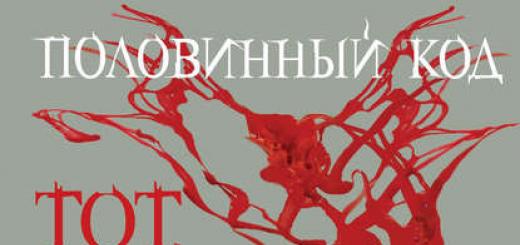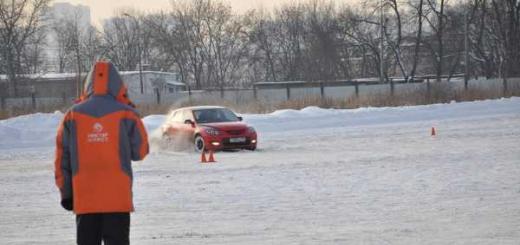Historian Olga Edelman told why the revolutionaries got party nicknames for themselves, how they came up with them, and how Koba turned into.
Lenin, Stalin, Trotsky - the people who bore these names are well known to us. But we rarely remember that none of them was born with such an entry in the passport, because all of these are pseudonyms.
However, they are so entrenched in their bearers that the famous revolutionaries have remained in history under fictitious names: they are full of school textbooks, they are stamped on monuments, they, after all, are called streets and cities.
IN AND. Lenin and I.V. Stalin in Gorki. 1922
But why did Dzhugashvili become Stalin, and Ulyanov became Lenin? Did the Bolsheviks need intricate nicknames only for conspiracy? Who was the role model for future leaders and whose names did they borrow? The candidate told about this and many other things in an interview with the Istoriya.RF portal historical sciences, leading specialist of the State Archives of the Russian Federation Olga Edelman.
To confuse the gendarmes
- Olga, tell us why the revolutionaries in Russia needed nicknames?
Nicknames were needed for conspiracy. For the same reason - a secret one - a revolutionary could simultaneously use several nicknames: one was used to communicate in an underground environment, the other served as an author's pseudonym, some more for one-time communication so as not to “shine” the main one, another was used at a party congress, etc. They were deliberately bred so that it would be more difficult for the gendarmes to identify an underground worker operating in a certain place with a participant in the congress and the author of articles in party periodicals. In addition, illegal immigrants used false or other people's passports, so sometimes they called themselves such a false name.

L.D. Trotsky at the military parade
And why did many former underground workers keep their pseudonyms even when they no longer needed to hide from the police? The most famous party leaders did this: Lenin, Stalin, Trotsky ...
After the revolution, those pseudonyms under which a person became known were preserved, and most often these are author's pseudonyms. Lenin, Trotsky became widely known as publicists, so they preferred to keep these names as surnames. So, "Lenin" is, first of all, the author's pseudonym, so Vladimir Ulyanov signed articles. Similarly - Maxim Gorky, whose real name and patronymic (Aleksey Maksimovich) generally stuck together with a pseudonym surname.
From Soso to Stalin
Tell us a little about Stalin. After all, the leader of the peoples did not always use this surname? What other pseudonyms did Joseph Vissarionovich have?
Joseph Dzhugashvili in the early stages of his illegal work, he was simply called Soso. This is a friendly, domestic form of the name Joseph, that is, something like Kolya and Sasha for Russian names. Then he came up with the nickname Koba, under which he became known in the Transcaucasian party underground (Koba, the hero of Alexander Kazbegi's adventure story "The Parricide", is considered Stalin's favorite literary character. - Note. ed.). He lived with fake passports in the name of Kaios Nizheradze and so on. After the revolution of 1905, when there were relatively many freedoms, he began to sign articles "Koba", "Ko ...", "K." - readers guessed who wrote it. Since 1910, Dzhugashvili began to sign articles with options - “K. St.", "K.S."

I.V. Stalin. 1902
- When did Koba finally turn into Stalin?
Alias "K. Stalin" gained a foothold only at the beginning of 1913, shortly before Dzhugashvili's arrest and exile to Turukhansk. At the 4th and 5th congresses of the RSDLP, he was "Ivanovich", and in St. Petersburg in 1912 the party nickname was Vasily, Vasilyev, and only a narrow circle knew that "Vasily" was "Koba".
Romantic image of a wrestler
I heard that sometimes the party nickname was a kind of key to the cipher and was used in secret correspondence. It's true?
I have not seen their use as a key to a cipher, and it is unlikely that this was the case. But the fact that party nicknames were used in correspondence is true. Moreover, sometimes Lenin and Krupskaya used two nicknames in the same letter, so that the gendarmes saw double. For example, in a letter addressed to “Vasilyev”, instructions were given in the third person to “Vaska”, as if it were a different person. Or a letter to Vladimir Ivanovich Nevsky (Russian revolutionary, Bolshevik, historian. - Note. ed.) Lenin addressed his real name Krivobokov and in the third person mentioned Spitsa - one of the nicknames of Nevsky (Nevsky is also a nickname).

IN AND. Nevsky
- And on what basis were pseudonyms generally chosen?
Some pseudonyms have a pronounced "working" style: Kamenev, Molotov, and even Stalin. In addition, there is a reference to the romantic image of a hard, unbending fighter. Trotsky assured in his memoirs that he came up with this surname by accident, when, during an escape from exile, it was necessary to enter some name in a fake passport (according to most historians, Leiba Bronstein chose a pseudonym for himself by the name of Nikolai Trotsky, the senior warden of the Odessa prison, where he was imprisoned in 1898. - Note. ed.). Georgy Ordzhonikidze from the very beginning of participation in revolutionary movement used the nickname Sergo, and Stepan Shaumyan - Suren and Surenin, in both cases it's just a name. There is a legend about the origin of the nickname Kamo, which goes back to himself, as if at the beginning of his career Soso Dzhugashvili called him that, because Semyon Ter-Petrosyan did not speak Russian well and once instead of “whom” he said “kamo”. “Oh, you,“ kamo ”, Soso teased him.
It should be noted that aliases for famous people- quite a common thing, and at different times they were widely used by writers, musicians, actors and other representatives of creative professions. At the same time, in most cases, the pseudonyms "grew" to their owners so much that many generations of fans of their talent perceive only these names, and someone is completely sure that they were given at birth.

L.D. Trotsky, V.I. Lenin, L.B. Kamenev
Meanwhile, such famous poets as Anna Akhmatova, Sasha Cherny, prose writer Mark Aldanov, writer and screenwriter Ilya Ilf, poet and playwright Mikhail Svetlov and many others whose names you hear are all pseudonyms. They can be perceived in different ways, since aliases are always masks, and their purposes vary depending on the goals of the carrier. Sometimes this mask is designed to hide some hidden sides of a person or obscure part of her story, sometimes to embellish the truth, create an atmosphere of mystery, sometimes to emphasize some key qualities of a person with which he wants to stand out. One way or another, each person has the right to choose a name for himself, under which he will become known to his contemporaries and descendants. While the name given at birth remains with him forever.
How did it happen that an ordinary teenager from the provincial Georgian village of Gori became the “head of the people”? We decided to see what factors contributed to the fact that Koba, who hunted for robberies, became Joseph Stalin.
The father factor
A father's upbringing plays an important role in the maturation of a man. Iosif Dzhugashvili was actually deprived of it. Koba's official father, shoemaker Vissarion Dzhugashvili, drank a lot. Ekaterina Geladze divorced him when her son was 12 years old.
The paternity of Vissarion Dzhugashvili is still disputed by historians. Simon Montefiori in his book "Young Stalin" writes about three "candidates" for this role: the wine merchant Yakov Ignatashvili, the head of the Gori police Damian Davrichui and the priest Christopher Charkviani.
childhood trauma
The character of Stalin in childhood was seriously affected by the injury that he received at the age of twelve: in a traffic accident, Joseph injured left hand, over time, it became shorter and weaker than the right one. Due to his dry hand, Koba could not fully participate in youthful brawls, he could win them only with the help of cunning. A hand injury prevented Kobe from learning to swim. Also, at the age of five, Joseph fell ill with smallpox and barely survived, after which he had the first “special sign”: “a pockmarked face, with smallpox signs.”
The feeling of physical inferiority was reflected in the character of Stalin. Biographers note the vindictiveness of the young Koba, his temper, secrecy and penchant for conspiracies.
Relationship with mother
Stalin's relationship with his mother was not easy. They wrote letters to each other, but rarely met. When the mother visited her son last time, this happened a year before her death, in 1936, she expressed regret that he never became a priest. Stalin was only amused. When the mother died, Stalin did not go to the funeral, he only sent a wreath with the inscription "Dear and beloved mother from her son Joseph Dzhugashvili."
Such a cool relationship between Stalin and his mother can be explained by the fact that Ekaterina Georgievna was an independent person and was never shy in her assessments. For the sake of her son, when Joseph was not yet either Koba or Stalin, she learned to cut and sew, mastered the profession of a milliner, but she did not have enough time to raise her son. Ros Joseph on the street.
Birth of Koba
The future Stalin had a lot of party nicknames. He was called "Osip", "Ivanovich", "Vasiliev", "Vasily", but the most famous nickname of the young Joseph Dzhugashvili is Koba. It is significant that Mikoyan and Molotov, even in the 30s, addressed Stalin in this way. Why Koba?
Literature influenced. One of the favorite books of the young revolutionary was the novel by the Georgian writer Alexander Kazbegi "The Parricide". This is a book about the struggle of mountaineer peasants for their independence. One of the heroes of the novel - the fearless Koba - also became a hero for the young Stalin, who, after reading the book, began to call himself Koba.
Women
In the book of the British historian Simon Montefiore "Young Stalin", the author claims that Koba was very loving in his youth. Montefiore, however, does not consider this to be something special; such a way of life, the historian writes, was characteristic of the revolutionaries.
Montefiore claims that among Koba's mistresses were peasant women, noblewomen, and party comrades-in-arms (Vera Schweitzer, Valentina Lobova, Lyudmila Stal).
The British historian also claims that two peasant women from the Siberian villages (Maria Kuzakova, Lydia Pereprygina), where Koba was serving a link, gave birth to sons from him, whom Stalin never recognized.
Despite such turbulent relations with women, Koba's main business was, of course, the revolution. In an interview with Ogonyok magazine, Simon Montefiore commented on the information he obtained: “Only party comrades were considered worthy of respect. Love, family were expelled from life, which was supposed to be dedicated only to the revolution. What seems to us immoral and criminal in their behavior did not matter to them.”
"Ex"
Today it is already well known that Koba, in his youth, did not disdain illegal deeds. Koba showed particular zeal during expropriations. At the congress of the Bolsheviks in Stockholm in 1906, the so-called "exes" were banned, a year later, already at the London congress, this decision was confirmed. It is significant that the congress in London ended on June 1, 1907, and the most notorious robbery of two State Bank carriages, organized by Koba Ivanovich, took place later - on June 13. Koba did not comply with the demands of the congress for the reason that he considered them Mensheviks, on the issue of "ex" he took the position of Lenin, who approved them.
During the aforementioned robbery, Koba's group managed to get 250 thousand rubles. 80 percent of this money was sent to Lenin, the rest went to the needs of the cell.
Stalin's not too clean reputation could become an obstacle to his advancement in the future. In 1918, the head of the Mensheviks, Julius Martov, published an article in which he cited three examples of Koba's illegal activities: the robbery of the carriages of the State Bank in Tiflis, the murder of a worker in Baku, and the seizure of the Nicholas I steamer in Baku.
Moreover, Martov even wrote that Stalin had no right to hold government posts, since he was expelled from the party in 1907. Stalin was furious at this article, he argued that this exclusion was illegal, since it was carried out by the Tiflis cell, controlled by the Mensheviks. That is, Stalin did not deny the fact of his expulsion. But he threatened Martov with a revolutionary tribunal.
Why "Stalin"?
Throughout his life, Stalin had three dozen pseudonyms. At the same time, it is significant that Joseph Vissarionovich did not make secrets from his surname. Who now remembers Apfelbaum, Rosenfeld and Wallach (Zinoviev, Kamenev, Litvinov)? But Ulyanov-Lenin and Dzhugashvili-Stalin are well known. Stalin chose the pseudonym quite deliberately. According to William Pokhlebkin, who devoted the work “The Great Pseudonym” to this issue, several factors coincided when choosing a pseudonym. The real source when choosing a pseudonym was the surname of a liberal journalist, at first close to the populists, and then to the Social Revolutionaries, Yevgeny Stefanovich Stalinsky, one of the prominent Russian professional publishers of periodicals in the province and translator into Russian of Sh. Rustaveli's poem - "The Knight in the Panther's Skin". Stalin was very fond of this poem. There is also a version that Stalin took a pseudonym based on the name of one of his mistresses, party comrades Lyudmila Stal.
In January 1913, in the midst of preparations for the celebration of the tercentenary of the Romanov dynasty, Joseph Dzhugashvili, while in Vienna, he wrote an article "The National Question and Social Democracy", which was published in the journal "Prosveshchenie" in March of the same year. The work was devoted to criticism of the National Social Democrats of the early 20th century, including the united Jewish workers' union (Bund), and the Caucasian separatists.
The article was tough and Lenin I wanted everything to be brought to a logical and uncompromising end. He dismissed all attempts to reduce The National Question and Social Democracy to a discussion, as his opponents wanted.
"It's a military issue, and we won't give up one iota of our principled position against the Bundist bastards," Vladimir Ilyich got excited. It was necessary to sign under the article, and the name Dzhugashvili did not look politically correct. Something solid and punishing was needed, and most importantly, supranational.
The Caucasian Koba did not fit into the environment of charismatic and talkative social democrats, such as Plekhanov or Trotsky. He was always laconic and gloomy, and from this he outwardly gave the impression of an "iron" man. Most likely, it was this circumstance that influenced the choice of a pseudonym. In the first version, he signed the article as Stalev, the man of steel. Lenin corrected him - "Stalin", they say, "we are political brothers."
Russian, Besoshvili, Vasily, David, Kato, Koba, Chopur, Soselo ... Joseph had about thirty nicknames in total. But it was after this article that he signed already, as Joseph Vissarionovich Stalin. This name had a mythical, downright diabolical effect on people, and as time has shown, it turned out to be a magical find for the pockmarked Georgian.
With the name of Stalin, they went to great construction sites and into battle. "For the Motherland! For Stalin!" - this cry lifted the fighters into the most hurricane fire. In everyday life, a toast was popular - "Let's drink to Stalin."
In the Soviet elite, he was called the "master". However, Stalin also had other nicknames, for which they were sent to the Gulag under Article 58, for ten years without the right to correspond - “Redhead”, “Cockroach”, “Gutalinshchik”, “Pockmarked”, “Yoska the Terrible”, “ Murderer".
By the way, Ulyanov himself had about 148 party nicknames. In the circle of associates he was called "Old Man", "Ilyich", "Lukich", "Petrovich". When choosing a party pseudonym, Vladimir Ulyanov settled on the name Lenin. An entire monograph has been written about what attracted him to it.
According to the St. Petersburg journalist Yakov Sukhotin, we can talk about a romantic background, that is, about the love of young Ulyanov for the chorus girl of the Mariinsky Opera Theater Elena Zaretskaya, with whom he was even engaged in 1895. In any case, such a story was told to him by a member of the Marxist circles of pre-revolutionary Russia, Mikhail Silvin, who, as a student of the law faculty of St. Petersburg University, knew Vladimir Ilyich as early as 1893.
Among historians, there is also a version about a stolen passport. At the end of the 19th century, Vladimir Ilyich planned to illegally cross the border, and “boots,” as the Social Democrats called fake passports, volunteered to get him a close friend of Nadezhda Krupskaya, mathematician Sergei Lenin. He stole a passport from ... his father, a landowner who could not stand the trouble-makers-revolutionaries on the "spirit". The difference in years was significant, but it was not difficult to "chemize" one digit in the year of birth. Subsequently, the need for a false document disappeared, and the nickname stuck and became the "calling card" of the leader of the proletariat. There is also a semi-official version that connects the name of Lenin with the events at the Lena mines on April 4, 1912, when the rebellious workers were shot.
Apparently, Lenin took seriously the search for the optimal pseudonym, considering it an indispensable part of the political image.
Unlike Lenin and Stalin, other leaders of our state preferred to keep their surnames, and then the people came up with nicknames for them, moreover, very witty.
After the death of Stalin, from 1953 to 1964, the USSR headed Nikita Sergeevich Khrushchev. In agriculture, his reforms, to put it mildly, cannot be called successful. Thus, under the program "Tselina" sown areas in Kazakhstan from 1951 to 1959 almost tripled, from 10 to 28 million hectares. But reclamation and environmental protection measures, such as planting forest belts, were not carried out. As a result, due to weathering, the soil was ruined, both for crops and pastures. The corn project turned out to be just as “successful”, when 28 million hectares were sown by the “queen of the fields”. Huge corn stalks had no cobs, and then the people called him Khrushchev in honor of the dangerous pest beetle, better known to the people as the cockchafer. The nickname "Khrushch" held until 1959.
It was then that the American National Exhibition was held in Sokolniki, and the future US President Richard Nixon during its presentation, he paid attention to American life, clearly shown on the example of a cottage in a section, built in full size. What was there just not there: three-chamber refrigerators, dishwashers and washing machines, great furniture. The Soviet people stood in front of this exposition, their mouths open in amazement. And then Nikita Sergeevich broke down in earnest, denouncing Americanism. “We’ll show you Kuz’kin’s mother!” he said in the heat of the moment. And from that time he was called, not otherwise than "Kuzka's mother". True, Khrushchev also had a more offensive nickname - "boar".
But to the General Secretary of the Central Committee of the CPSU Leonid Ilyich Brezhnev The people were friendly, though not without irony. Usually he was called Lenya or "Brownos". Brezhnev's love for awards was especially ridiculed, and with the nickname "twice Ilyich Soviet Union"In November 1982, he went to another world.
Brezhnev's time, despite the "stagnation", was the era of the Soviet-style consumer boom, when it was possible to acquire a cooperative apartment, Zhiguli, Rubin TV, Romanian furniture. There were no particular shocks, which is why, perhaps, only Brezhnev did not leave behind a trail of evil nicknames, which cannot be said about the politicians of recent history.
Mikhail Gorbachev, became in April 1985 General Secretary The Central Committee of the CPSU began "perestroika". One of her most noisy campaigns was the proclamation of "dry law". The struggle for total sobriety, when both weddings and funerals were held without alcohol, ended in a deep hole in the budget, uprooted vineyards and antipathy towards Gorbachev himself. It was then that he began to be called "genseok", "mineral secretary", "lemonade Joe". It is not surprising that having lost the “throne”, Mikhail Sergeevich did not like to remember that time, and attributed the “excesses” to Politburo members Ligachev and Solomentsev. Seems like they overdid it.
After 1988, it became clear that "perestroika" was failing and the country was heading for the abyss. The shortage of consumer goods became total, coupons for sugar, soap, cigarettes, meat were introduced, bloody interethnic conflicts began to flare up on the outskirts of the USSR. At this time, two nicknames were fixed among the people for the "father of perestroika" - "labeled", "bald" and "humpback".
Directly opposite was the attitude towards Gorbachev in the West. After the demolition of the Berlin Wall, democratic reforms in Eastern Europe and successful visits to England and the United States from the point of view of the image, Mikhail Gorbachev began to be called "Gorby". So he is called in the foreign press today. True, on its pages, he gets less and less.
Even more derogatory assessments in his native country were awarded to the first president of Russia Boris Yeltsin. The collapse of the Union, "shock therapy", privatization, the shooting of the White House in 1993, the war in Chechnya - all this caused mass discontent and anger. Crime flourished. The opposition press called Yeltsin Yaitsin, Eltsyn, "EBN". But what is characteristic: despite the offensive tone of the publications and open mockery, the publications were not closed, editors and journalists were not persecuted. Yeltsin considered freedom of speech an essential element of democracy.
The explosive, imperious character of Boris Yeltsin, always ready for sudden movements, became a byword in his environment. Sometimes the president was called "Tsar Boris", and this clearly flattered him. IN last years Yeltsin's reign has given up badly. He no longer resembled himself in 1991. Behind his eyes he was called "grandfather". But Yeltsin did not turn into an object of ridicule, like the “late Brezhnev”. Some hated him, others respected him, but were afraid to laugh ...
No matter how humiliating or even insulting the nicknames that the people bestowed on their rulers, they are symbols of the epochs, and most importantly, reflect the people's attitude towards the owners of the Kremlin. In fact, this is a characteristic of a leader with a more accurate rating than sociological surveys can give.
Photo by ITAR-TASS / Fotoimedia / Igor Tabakov
December 6, 1878 according to the modern version, December 9 (21), 1879 according to the official version of the Soviet period, the future prominent party leader and head of the government of the Union of Soviet Socialist Republics Joseph Vissarionovich Stalin.
Much, much is known about Joseph Stalin. But this applies to his biography after the revolution. And here it is before revolutionary biography represents a series of white spots. But the pre-revolutionary part of his life is half of his biological life in general.
This is how Stalin is divided - before the revolution and after. In this first part of his life, he was by no means always the Stalin we know him to be.
He, like everyone else, was an ordinary child, a teenager. And then he was a seminarian, a poet, and finally a revolutionary. The oldest member of the Bolshevik Party, who acted and led the Bolshevik cells for 19 years until the revolution. And this is a long time.
What was the name of Stalin at that time? Who knew him?
..........................
In official printed works, there are 18 printed names (pseudonyms) and 6 party nicknames, which was the name of a member of the Bolshevik Party, Joseph Vissarionovich Dzhugashvili. This was his name, patronymic and surname from birth
Later, after a detailed study of the early biography of Stalin, the study of letters and documents, they found 6 more pseudonyms that Stalin used during his struggle in the Bolshevik underground.
These thirty titles, in their chronological order, are the ones he used from 1898-1914. :
1. Besoshvili I.
2. Vasily
3. Gilashvili
4. David
5. J-shvili
6. Ivanovich
8. K.S.
9. Kato, K.
10. Ko..
11. K.Ko.
12. Koba
13. Koba Ivanovich
14. Comrade K.
15. Nizharadze (Nizheradze)
16. Melikyants (1910?)
17. Same
18. Chizhikov
19. Chopur
21. S-n.K
22. Stefin, K.
23. Salin, K.
24. Soseli (Soseli)
25. Soselo
26. Art. AND.
27. Art. TO.
28. Solin, K
29. Stalin, K
30. Stalin, I.V.
Here it is necessary to divide the above designations into 4 parts - initials (K, K.S, Ko), names (Koba, David), surnames (Chizhikov, Gilashvili) and names + surnames (Koba Ivanovich, Stalin, K, Stalin, I. IN.).
This is the first feature. The second is that Stalin quite often took as pseudonyms the names of people he really knew. For example, the worker Nizharadze was known to Stalin from Batumi, and the other P.A. Chizhikov from Vologda. And under the pseudonym "Ivanovich" Stalin was delegated to the IV Unity Party Congress in Stockholm and was noted in its protocols as a representative of the Tiflis organization.
But most of these names were temporary. There were only a few truly important ones in his life. With the growth of Stalin's authority, his pseudonyms also changed.
If the first pseudonyms were short, often consisted of one word, then pseudonyms starting with the letter "K" begin to take on a completely different meaning.
Here it is worth dividing the pseudonyms according to the spelling, which in practice reflected how the author of these names himself changed:
- simple names for the letters B, C, D, D, I
- names starting with K
- names / surnames on T, N, M, H
- Names starting with K, last names starting with C
A lot depended on names and surnames, and Stalin understood this. As I already wrote, only a few pseudonyms were important for him, namely, only two.
The first one is Koba. Why did Stalin choose this pseudonym? Stalin, having already become Stalin, often signed in a letter to his comrades-in-arms as " Koba", for him this alias had great importance. He first took this pseudonym in the summer of 1903, when he was still in the Kutaisi prison. And already from January 1904, under this pseudonym, Stalin became known in the revolutionary movement of Transcaucasia.
This alias is easily recognizable under the letter K, K.S, Kato, K., Ko., K.Ko, Koba Ivanovich
So what does this word "Koba" mean? In fact, this pseudonym had a very deep symbolic meaning. Now there are two definitions of this name.
First. Koba, Kobe, Kova, Kobe means - sorcery. This is how the old Church Slavonic language interprets the designation of this word. Sorcery meant an omen, an augur, a sorcerer, a soothsayer.
Second. Koba - on behalf of the Persian king Cobades, king of the Sassanid dynasty . This king Koba subjugated Eastern Georgia to his will, during his reign the capital of Georgia was transferred from Mikhet to Tbilisi in the fifth century AD, where it has been preserved unchanged for 1500 years.
But even here, not everything is so simple. The fact is that the historian Feofan wrote about Tsar Kobe as an extraordinary personality who, together with the Mazdakites (early communists), preached the division of property, in fact the equivalent early communism.
The rich, the elite did not accept these changes, they plotted and overthrew King Koba. But the communist tsar was freed by a woman devoted to him, and he again regained the throne.
This was the origin of the pseudonym Koba. But for Stalin, the problem was that this pseudonym was convenient only in the Caucasus, but not among the Russian population. Stalin had to come up with another pseudonym. He began to create them after his exile in the city of Solvychegodsk.
So, starting in 1910, Stalin appeared under a number of new pseudonyms -- K.S., K.S., K. Stefin.
Then in 1912, the revolutionary newspaper Zvezda would publish it under the names K.Salin, and then K. Solin..
"TO"It is always and only Koba. But the names have changed. Sometimes external factors were attached to the change of surname, for example, "Solin" from the name of the graying - Salt, Usolye, Solvychegodsky.
Other alias K. Stefin, i.e. Stefin Koba, Koba Stefa (Stepanids, Stephanie), on behalf of a certain Stefa, a woman who helped Stalin escape from exile. Here his story literally repeats itself with the story of King Koba, who was also saved from imprisonment by a woman.
But in spite of everything, all these surnames were temporary, the revolutionary Joseph Dzhugashvili faced the question of a new surname that would meet the interests of the revolution. And this issue began to acquire special importance for Stalin in 1912.
During this period, he was already leading the revolutionary struggle in St. Petersburg. Then he was called Koba Solin.
................................................
In 1912, the professional revolutionary Koba Solin could no longer remain Koba Solin. In Russia, the name "Koba", rooted in ancient Persian-Georgian stories, could not be used in the Russian revolutionary environment.
Being in the St. Petersburg underground, he needed a new surname. What choice could he make? The new surname had to meet a number of important requirements.
Firstly, it had to be Russian, secondly, it had to be impressive, serious in content, thirdly, it had to have a certain meaning, and fourthly, it had to be easy to remember and pronounce.
He was probably looking for a suitable option for a very long time. But he found it.
Few people noticed that the published articles in the Pravda newspaper, No. 147 of October 19, 1912, appeared the author, with the initials " K. St .". It was not K. Stefin, the author no longer used this pseudonym. It was already completely different.
"TO" is Koba, and " St." Then it remained a mystery, but only until January 1913. What was Stalin thinking about choosing a new surname? Why did he choose exactly what he chose?
There is another common and popular version. That the first part of the name Dzhugashvili (Dzhuga) is translated from Georgian as “steel”.
But as it turns out, the name "Juga" does not exist in Georgia, it does not mean anything. Either Stalin's surname was of non-Georgian origin, or it was previously spelled differently.
Maybe he took an example from someone?
It is likely that the real source when choosing a pseudonym was the surname of a journalist, at first close to the populists, and then to the Socialist-Revolutionaries Evgeny Stefanovich Stalinsky,
one of the prominent Russian professional publishers of periodicals in the province and a translator into Russian of Sh. Rustaveli's poem - "The Knight in the Panther's Skin"". Stalin was very fond of this poem.
Yes, perhaps the future leader remembered Yevgeny Stalinsky and he decided to take a surname consonant with the surname of the journalist.
But it is unlikely that he would take a surname only because of its sound. No, Stalin was not like that. He approached each serious choice very reasonably and his new surname had to carry a certain meaning. The answer to why Stalin chose such a surname must be sought in Arabic studies.
An interesting alignment is indicated by the Arabist N.N. Vashkevich, saying this: "…verb استلّ "istalla: "pull out, draw the sword."
Joseph has the same consonants as Arabic سيف safe "sword ".
Like it or not, one can argue. But this explains a lot. Stalin felt like a drawn sword of the revolution. He said this directly in his work on the political strategy and tactics of Russian Marxists in 1921:
“The Communist Party is like a kind of order of sword-bearers within the Soviet state, directing the bodies of the latter and inspiring their activities.
The value of the old guard is within this mighty order. Replenishment of the old guard with new workers who have hardened over the past three or four years.
If we take H as the root, then the surname can be divided like this sta-lin. Then the 1st part is conjugated with the verb سطا sata (root STV) " attack, attack, pounce »
And the 2nd - with the root لين LYN, expressing " softness" .
This is how his contemporaries describe him. Soft, courteous in public, but at the same time steadfast, resolute, tough and uncompromising when the interests of the party require it.
No less interesting is another reading: استلعن ‘Istalian(root LЪN), which can be translated as " take [on] curses ". After all, Stalin knew perfectly well that he would be cursed after death, and someone during his lifetime.
Probably, it was very hard for him to work, knowing that his descendants would curse him for this work. When making difficult decisions, he faced a double difficulty - he knew that his actions would be slandered and slandered. And yet, it worked.
Two people coexisted in Stalin, and this was not hypocrisy. Both of his faces were real
The surname Stalin reflected him internal state, a man soft, hard and ready to take the curse
Stalin, as time has shown, was not mistaken in choosing his surname. Already her pronunciation spoke of his greatness
It is difficult to say now, when no one from the old Leninist Bolshevik Party was left alive, how the new Stalinist pseudonym was then perceived. But still, it can be assumed that they nevertheless noticed him, but they reacted calmly: there were too many pseudonyms in the party at that time. But in 1935, Henri Barbusse, without hiding his admiration, wrote:
« This - iron Man. The surname gives us his image: Stalin - steel. He is inflexible and flexible like steel »
So how did Stalin and when did he become Stalin? It happened in Vienna.

The house in Vienna where Iosif Dzhugashvili, who lived under the pseudonym Koba Solin, decided to become Stalin

Joseph Stalin, 1913
In the "Social-Democrat" No. 30 of January 12 (25), 1913 under the article " On the road to nationalism» is also signed " K.St "., but this article was published already when Stalin finished the manuscript of his work" Marxism and the national question»,

The first work that revealed Stalin to the world
The original inscription read:
"K.Stalin »
This is how Stalin appeared.
Most politicians of the Soviet era preferred to use aliases. They are usually associated with historical events, character traits of the owner or carried other personal reasons. Writers, politicians, scientists became famous precisely under a pseudonym, having managed, if not to keep their real surname a secret, then at least get rid of its use among the people.
The legendary leader of the USSR, Joseph Vissarionovich Dzhugashvili, was no exception. During his lifetime, he had more than thirty pseudonyms - names, surnames, initials, party nicknames. All of them did not arise by chance and carried a certain meaning. The pseudonym under which the cult personality went down in history was the surname Stalin. It is associated among the people with the difficult time of the Great Patriotic War and with the great victory that has been achieved.
This name is associated with mass persecutions and executions, political repressions, denunciations and oppression of the people, and at the same time with the period of reconstruction after the war, the development and prosperity of the Soviet Union. Perhaps in the area former USSR there is not a single family whose past would not have a connection with the name of Stalin. Many people think that "Stalin" is the real name of the leader.
The history of the emergence of the brightest pseudonym I.V. Dzhugashvili
Many legends are connected with the appearance of the pseudonym Stalin.
Some people believe that the source for it was the surname real person, journalist E.S. Stalinsky, who translated into Russian one of Joseph Vissarionovich's favorite poems - "The Knight in the Panther's Skin". At the end of the 19th century, Dzhugashvili himself was engaged in poetry, and, perhaps, decided to take a surname consonant with the author of his favorite work. However, this version runs counter to the character of the world leader, who is accustomed to making only balanced and deliberate decisions.
Stalin from the word "steel"?
So, some put forward the version that the pseudonym "Stalin" is intended to be associated with steel - a hard and durable metal. In the same way we see the character of a revolutionary - persistent and inflexible.
There is a similar Arabic version of origin, according to which the verb "istalla", consonant with the pseudonym chosen by Dzhugashvili, is translated from Arabic as "pull out the sword". Indeed, Stalin was often referred to by his comrades-in-arms as "the naked sword of the revolution."
Perhaps the emergence of the last two legends is not accidental. After all, the name Dzhugashvili is literally translated from Georgian into Russian as "son of steel", from the ancient Georgian "juga" - steel, and "shvili" - son. They characterize the politician as a strong man with an unbending will and desire to fight.

Other opinions about the origin of the pseudonym
It is worth mentioning the less popular versions of the origin, which also have linguistic grounds. According to one of them, if we divide the surname into sta- and -lin, we get two opposite translations: “attack, attack”, and “soft”. Some contemporaries of the leader believe that such a description fits him perfectly. Courteous and gentle with relatives and friends, he was a tough and uncompromising ruler when it came to the interests of the party and the country. Stalin perfectly combined two opposing qualities.
Finally, one of the most rare legends is the reading of the name Stalin as the Arabic "Istalian", which in Russian means "accepting curses". The world leader probably assumed that, admiring him during his lifetime, people would curse the times of his reign after his death. After all, the decisions he made crippled many human destinies and destroyed millions of families. However, he continued to do his hard work, thus ready to take on the curses.
Whatever the reason for choosing a pseudonym, the surname Stalin was firmly attached to the ruler, becoming very successful and fateful for him. It was under her that he entered the history of the Soviet Union, that is what his contemporaries called him and continue to call him until now, and it is her appearance that causes people the largest number questions. Why was Stalin called Stalin? The personality of the world leader is shrouded in many secrets, and this is one of the mysteries that we will never have to solve.
The birth of Koba: an underground nickname or a conscious choice of Stalin
Another pseudonym, under which the head of the people is known to a wide range of people, was the second most popular and beloved by Joseph Vissarionovich - Koba. History has not preserved exact information about why Stalin was called Koba, but there are several possible explanations for this.
Literary version
According to the literary version, he had a personal hidden meaning for the young Dzhugashvili, who at that time had not yet become a tough and powerful ruler and lived in Transcaucasia. Iosif Vissarionovich met the name Koba in the patriotic story of the classic of Georgian literature Alexander Kazbegi "The Parricide". The hero of the story Koba, a young mountaineer who is fighting with all his might for the independence of Georgia. Courageous and persistent, he is ready to achieve the goal at the cost of any sacrifice. Perhaps Stalin saw himself the same way - a staunch and fearless native of the people, capable of leading the masses of the people.

It is worth noting that the name of the hero of the novel itself was borrowed by A. Kazbegi from the history of Georgia, and comes from the name of the Persian king Kobades, who conquered Eastern Georgia in the 5th century. Interesting fact- the tsar preached communist views, advocating an equal division of property, for which he was dethroned and imprisoned. But soon released from prison by his beloved woman, he again returned to the throne, continuing to remain an adamant ruler. Historians trace an obvious connection between the biographies of the Koba Tsar and Joseph Vissarionovich.
Criminal version
Another, less romantic explanation is connected with the times when the young Dzhugashvili hunted for robberies and was forced to wander around the prison camps. Allegedly, there he was given the nickname "Koba", in prison circles meaning "indomitable".
The pseudonym Koba was more popular in Georgia. When Iosif Vissarionovich moved to the political arena, he became Stalin, and only close comrades called him the old-fashioned Koba, without thinking about the origin of this nickname and without drawing any parallels. The short and capacious surname Stalin turned out to be the most worthy of the great world ruler.
Facts from the history of the reign of the world leader
Stalin took his first political steps back in Georgia, at the beginning of the 20th century, participating in rallies and organizing demonstrations. After meeting the leader of the world proletariat, he absorbed the revolutionary ideas of Lenin even more and became the leader of the Bolshevik Party. The years of Stalin's rule begin in 1922 with a policy of forced collectivization Agriculture and continued until his death in 1953.
The ruler himself considers the years of the first five-year plan to be the most important in the development of the country. If at the beginning the plan was feasible and brought justified results, then Stalin, inspired by success, increased the planned indicators so much that the situation in the country escalated to the limit and, as a result, resulted in mass riots, arrests and repressions. So why did Stalin call 1929 the year of the great turning point, if the internal situation in the country was far from optimistic?
Considering the political course of the Soviet Union in the late 20s and early 30s, outwardly the picture really seemed rosy. Thanks to the forced industrialization, the forced collectivization of property on collective farms, the development of extractive industries, as well as the introduction of the strictest economy regime, Russia turned from an agrarian country into an industrial one.










